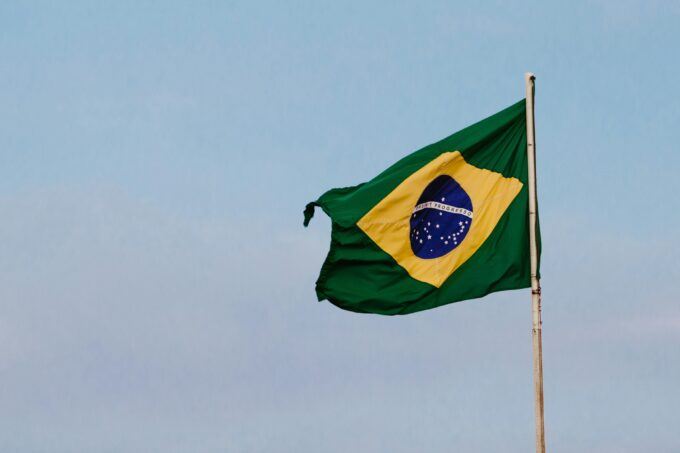Russian anarchists in exile organized at Berlin "Anti-War March"

From de.indymedia
Today, November 17, 2024, Russian anarchists in exile organized a bloc at the "Anti-War March" announced by the liberal opposition. We used this opportunity to:
demonstrate that the Putin regime is opposed not only by liberal forces but also by anarchists,
introduce our agenda and present an alternative to the liberal opposition,
show solidarity with our comrades fighting and dying on the front lines for the liberation of Ukraine,
express solidarity with our comrades in Russian prisons.
Among the slogans on our banners were: "Death to the Empire", "No peace under Russian occupation", "Support resistance against Kremlin", and "Зброю українцям" ("Weapons for Ukrainians").
We reject the liberal myth of a "Beautiful Russia of the Future." The experience of Perestroika has shown that changing the scenery does not bring fundamental changes in the relationship between power and the people. The empire must be destroyed to its foundations, and only then will a different world be possible on the former “Russian” territories.
We find it unacceptable to make concessions to the Russian fascist regime. Ukrainian resistance must be supported until the Russian army is completely expelled from Ukraine. Leaving territories under Russian occupation means condoning the murders, torture, rapes, and plundering of the indigenous population by Russian occupiers.
We consider the support of both military and partisan resistance against the Kremlin legitimate. At this moment, Russian expansion is the greatest evil in the region. A military defeat of Russia offers real chances for the development of social revolutions in Russia and Belarus.
Our comrades are dying on the front lines and sitting in Russian prisons. They have made significant contributions to the fight against Russian imperialism, and we must continue to remind people of their sacrifices.
We cannot name all those who have fallen in the struggle against Russian imperialism, but here are some of their names:
Maxim Naumenko, Olga Volkova, Igor Volokhov, Yuri Samoylenko, Dmitry Petrov, Ruslan Tereshchenko, Marcy, Sergey Ilychenko, Sergey Petrovichev, Roman Legar, Vladislav Yurchenko, Sergey Kemsky.
Our comrades in Russian prisons include:
Viktor Filinkov, Ilya Shakursky, Andrey Chernov, Vasily Kuksov, Alexander Snezhkov, Lyubov Lizunova, Nikita Oleynik, Danil Chertykov, Deniz Aydin, Yuri Neznamov, Roman Paklin, Nikita Uvarov, Azat Miftakhov, Ruslan Ushakov, Alexey Rozhkov, Roman Shvedov, Ruslan Sidiki.
We call on European comrades to join the fight against the fascist Russian regime. For those who claim the need to combat militarism in the current circumstances, we urge you to pay attention to the supply of components to Russia by European companies.
Anarchist Radio Relay League's October Update

From Anarchist Radio Relay League
November 7, 2024
This is an update of some of our activities for the month of October, 2024.
A demo was held at an Anarchist book fair where we made voice contact with a comrade about 950 miles (~1529 KM) away on the 20 meter band.
We have been joined by new comrades from Australia, northern Europe, the East coast, Southeast, upper-Midwest, and West coast of the so-called “United States”. Among these comrades are people connected with Mutual Aid Disaster Relief. We are forming plans to share knowledge and resources in the near future.
Archive.org was hacked and came back online 12 days later. 31M user accounts and hashed passwords were stolen. This was a pretty considerable disruption to many online activities, including the ability to archive news articles, political commentary, and to fact check claims about – among many other things – Israel’s ongoing genocide of Palestinian people.
And while this didn’t happen in October, obviously most of us woke up yesterday morning to find that Donald Trump had been elected to be the next president of the so-called “United States”. Whether you voted or not, and regardless of your feelings about the opposition, now is yet again – and still, as always – the time to prepare, and to protect and uplift one another.
Use Signal, use Tor. Build community, grow food, train up, get comms. We protect us.
“It is our suffering that brings us together. It is not love. Love does not obey the mind, and turns to hate when forced. The bond that binds us is beyond choice. We are brothers. We are brothers in what we share. In pain, which each of us must suffer alone, in hunger, in poverty, in hope, we know our brotherhood. We know it, because we have had to learn it. We know that there is no help for us but from one another, that no hand will save us if we do not reach out our hand. And the hand that you reach out is empty, as mine is. You have nothing. You possess nothing. You own nothing. You are free. All you have is what you are, and what you give.”
Shevek, The Dispossessed by Ursula K. Leguin
Veins of Ice, Heart of Fire: Late Fall/Early Winter issue is now here.

Mon cher monde sauvage,
The whirlwind of ink, thoughts, et ferocious wildness pouring into the P.O. box these past two months has been an absolute délice. Each time it is unlocked, there’s a flood of anarchists et wild things—sending their stories, zines, sketches, photographs, their books, their amour fou. Tokens of love and madness. Physical proof that connection au-delà du cybernétique is alive, thriving, et perhaps louder than ever.
Some of you send along un petit peu d’argent, covering not just your zines but gifting others, et others send art crafted in fire: manifestos, journals, flyers, words of defiance so rich. Your creativity is a preuve éclatante that the anarchic spirit cannot, will not, be tamed. And oh, the artwork—paintings, illustrations, photographs that defy description, each whispering, “I am out here, too! Let’s be wildcats together!” ;) Every piece makes me blush, grin, et want to linger. Rebellion is always better with a touch of the sensuous.
But I digress—revenons à nos moutons. Let’s get to the update: the Late Fall/Early Winter issue of Distinctively Dionysian, ‘Veins of Ice, Heart of Fire: The Winter of Me, the Edition of Extremes’ is complete and printing. It’s a jewel, glimmering with egoist decadence, iconoclastic passion, et all, the whispers and roars of the wild. C’est un rêve rebelle.
As always, if in the U.S., send $15 for the issue—or send things on the principle of mutuality, and we’ll exchange. (If outside of the U.S., factor in the shipping cost yourself (*thick booklet) & send it along to our PO BOX; you may also trade on the basis of mutuality. ) :
Distinctively DionysianPO BOX 1332,
Astoria, Oregon, USA,
97103

Late Fall/Winter I/II: Veins of Ice, Heart of Fire. The Winter of Me, an Edition of Extremes.
As mentioned, the Late Fall/Early Winter issue of Distinctively Dionysian, ‘Veins of Ice, Heart of Fire: The Winter of Me, the Edition of Extremes’ is complete and printing. This Early Fall/Winter issue is thematically linked with the next issue, so part one of two issues focusing on so-called madness et hysteria, and “extremes” (up for interpretation- yours truly’s direction with “extremes” is ice-cold truths et beauty, always beauty.. other’s here have quite a different take – you choose!)
Submissions for the second issue are open. This next one is for the true enfants terribles. As always, a love letter to those who refused to conform, who chose the sublime over the sane.
*While Distinctively Dionysian remains egoist-informed and individualist, no isms are found here: anarchists, iconoclasts, and free-spirited wild-things bursting forth from the creative nothing are all encouraged to add their voices. Bring your most daring, your most untamed..!
Alors, mes amis rebelles, keep writing, keep creating, keep pouring your beautiful defiance into envelopes and mailboxes, but mostly in the world around you, untethered et always unrepentant.
XXOO
Yours,
~ F



